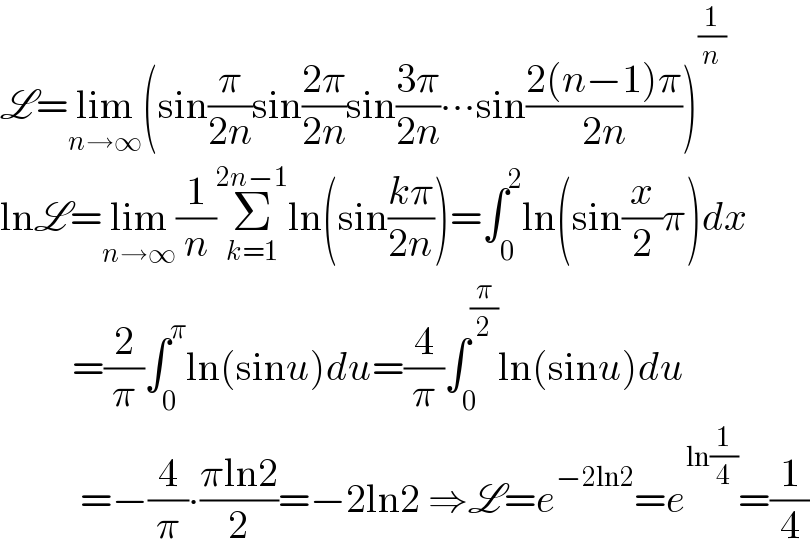
Question and Answers Forum
Question Number 155450 by SANOGO last updated on 30/Sep/21

Answered by Kamel last updated on 30/Sep/21

Commented by SANOGO last updated on 01/Oct/21

Answered by Ar Brandon last updated on 30/Sep/21

Commented by SANOGO last updated on 01/Oct/21

